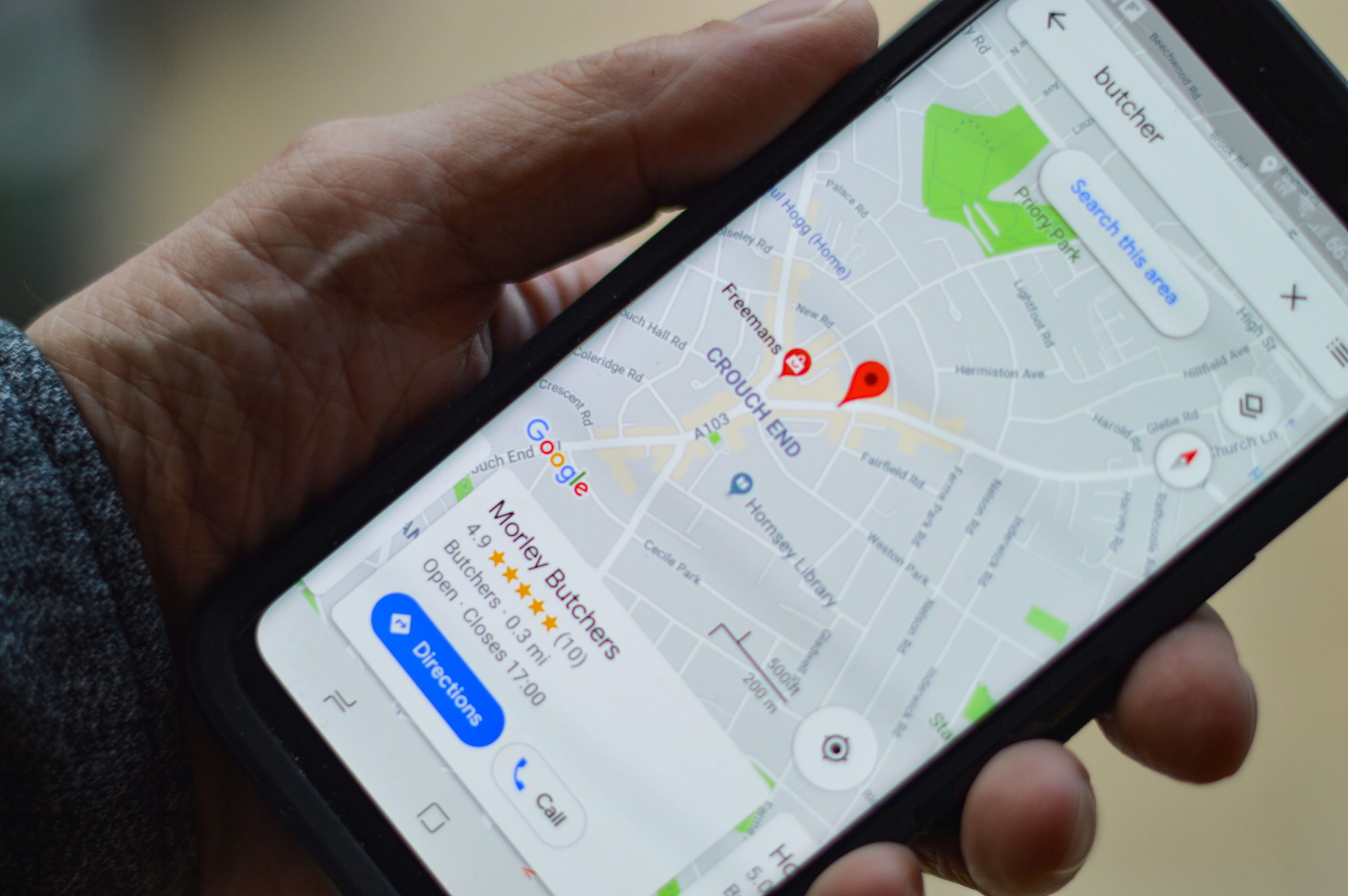In today’s digital era, location-based apps have become an integral part of our lives. From navigation and travel to social networking and on-demand services, these apps utilize GPS technology to provide users with personalized experiences based on their location. If you’re interested in developing your own location-based app, this comprehensive guide will walk you through the detailed process, explain GPS technology, and provide insights into the cost involved.
Understanding the Basics: What is a Location-Based App?
Before diving into the development process, it’s essential to understand what a location-based app is. Simply put, a location-based app is a mobile application that leverages GPS (Global Positioning System) technology to provide users with location-specific information, services, or experiences.
Step by Step Instructions to Create a Location-Based App
Unlock the secrets of building a location-based app with our step-by-step guide below, providing detailed instructions to bring your idea to life.
Planning and Ideation
The first step in creating a location-based app is thorough planning and ideation. Begin by clearly defining the purpose of your app. Determine the specific problem it aims to solve and how it will benefit its users. Next, identify your target audience and understand their needs and preferences. Conduct market research to analyze existing location-based apps and identify their strengths, weaknesses, and gaps in the market. This research will help you differentiate your app and identify unique features to incorporate.
Defining App Features
Based on your research and target audience, outline the core features your location-based app will offer. Some common features include user registration and profiles, GPS-based location tracking, map integration and route optimization, search and filtering functionality, push notifications and alerts, social sharing and user-generated content, and in-app messaging and communication. Determine which features are essential for your app and prioritize them accordingly. Some common features include:
· User registration and profiles
· GPS-based location tracking
· Map integration and route optimization
· Search and filtering functionality
· Push notifications and alerts
· Social sharing and user-generated content
· In-app messaging and communication
Choosing the Right Development Approach
When it comes to developing a location-based app, you have several options. You can choose to build a native app for a specific platform, such as iOS or Android, or opt for cross-platform development frameworks like React Native or Flutter. Consider factors such as budget, target audience, time to market, and app performance while choosing the development approach that best suits your requirements.
Developing the App Backend
The app backend serves as the backbone of your location-based app. It handles data storage, retrieval, and communication between the app and external services. You can choose between developing a custom backend or utilizing cloud-based backend as a service (BaaS) platforms such as Firebase or AWS. The backend should be capable of handling user authentication, location data storage, and integration with third-party APIs.
Implementing GPS Technology
GPS technology is at the heart of any location-based app. It allows precise location tracking and provides access to various location-based services. To implement GPS functionality, you can use platform-specific APIs such as Core Location for iOS and Google Play Services Location API for Android. These APIs provide methods to retrieve the user’s current location, monitor location changes, and calculate distances.
Designing the User Interface
A visually appealing and intuitive user interface (UI) is crucial for the success of your app. Design the UI keeping your target audience in mind and ensure it aligns with your brand identity. Pay attention to elements like map integration, location markers, and clear navigation. Use wireframing tools or hire a UI/UX designer to create a polished and user-friendly interface.
Testing and Debugging
Thorough testing is essential to ensure your location-based app functions smoothly. Test various scenarios such as location accuracy, performance under different network conditions, and compatibility across different devices. Use debugging tools and gather feedback from beta testers to identify and fix any issues or bugs that may arise during the testing phase.
Deploying and Publishing the App
Once your app has undergone rigorous testing, it’s time to deploy and publish it on the respective app stores, such as the Google Play Store and Apple App Store. Follow the guidelines and requirements provided by the app stores to ensure your app meets all necessary criteria. Prepare compelling app descriptions, screenshots, and promotional materials to attract users to download and use your app.
Cost to Create a Location-Based App
The cost of developing a location-based app can vary significantly based on several factors, including the complexity of features, platform(s) targeted, development approach, UI/UX design, and backend infrastructure. It’s crucial to create a detailed budget and consider expenses related to development, testing, ongoing maintenance, and marketing. Carefully analyze your requirements and allocate resources accordingly to ensure the successful development and launch of your location-based app.
Why You Need to Hire a Professional App Development Company to Create a Location Based App?
Creating a location-based app is a complex and multifaceted process that requires expertise in various domains, ranging from app development and user experience design to backend infrastructure and integration with external services. While it may be tempting to embark on the app development journey independently, there are several compelling reasons why hiring a professional app development company is highly recommended:
Technical Expertise
Developing a location-based app involves intricate technical aspects, including GPS integration, real-time location tracking, map integration, and efficient data management. Professional app development companies have teams of experienced developers who possess the necessary skills and knowledge to handle these complexities effectively. They stay updated with the latest technologies, frameworks, and best practices, ensuring that your app is developed using cutting-edge solutions.
Efficient Resource Management
Developing an app requires a significant investment of time, effort, and resources. Hiring a professional app development company allows you to leverage their existing infrastructure, development tools, and resources. They have well-established workflows, project management methodologies, and a pool of talented professionals to ensure efficient resource allocation and project execution. This saves you the hassle of building everything from scratch and allows you to focus on your core business objectives.
User-Centric Design
User experience is crucial for the success of any app, including location-based apps. Professional app development companies have dedicated UX/UI designers who specialize in creating intuitive and visually appealing interfaces. They conduct user research, create wireframes and prototypes, and perform usability testing to ensure that your app provides a seamless and engaging user experience. Their expertise in user-centric design enhances user satisfaction and increases the chances of app adoption and retention.
Robust Backend Development
The backend infrastructure of a location-based app is responsible for data storage, retrieval, and seamless communication between the app and external services. Professional app development companies have backend developers who can architect and develop a scalable and secure backend system. They can handle user authentication, integrate with third-party APIs, and optimize the performance and reliability of your app’s backend.
Quality Assurance and Testing
A critical aspect of app development is thorough testing and quality assurance. Professional app development companies have dedicated QA teams who employ rigorous testing methodologies to identify and resolve bugs, glitches, and performance issues. They perform various testing scenarios, including location accuracy, network conditions, and device compatibility, ensuring that your location-based app functions smoothly across different devices and environments.
Ongoing Support and Maintenance
App development is an iterative process that requires continuous updates, bug fixes, and feature enhancements. Professional app development companies provide ongoing support and maintenance services to ensure that your app remains up-to-date, secure, and compatible with the latest operating systems and devices. Their proactive approach helps you address any issues promptly and provide a seamless experience to your app users.
Frequently Asked Questions (FAQs)
To start creating a location-based app, begin with thorough planning and ideation. Clearly define the purpose of your app, identify your target audience, and conduct market research to understand the competition. Define the core features your app will offer, choose the right development approach, design the user interface, test and debug the app, and deploy it on the respective app stores.
Some essential features of a location-based app include user registration and profiles, GPS-based location tracking, map integration and route optimization, search and filtering functionality, push notifications and alerts, social sharing and user-generated content, and in-app messaging and communication.
The choice between building a native app or opting for cross-platform development depends on factors such as your budget, target audience, time to market, and app performance requirements. Native apps offer better performance but require separate development for each platform (e.g., iOS and Android). Cross-platform development frameworks like React Native or Flutter allow you to develop a single codebase that can be used for both platforms, but they may have some performance trade-offs.
GPS technology is essential for accurate location tracking and accessing various location-based services in a location-based app. It enables you to retrieve the user’s current location, monitor location changes, and calculate distances. GPS technology forms the foundation for features like mapping, routing, geofencing, and location-based notifications in your app.
To implement GPS functionality, you can utilize platform-specific APIs such as Core Location for iOS and Google Play Services Location API for Android. These APIs provide methods to retrieve the user’s current location, monitor location changes, calculate distances, and perform other location-related operations. By integrating these APIs into your app, you can leverage GPS technology effectively.
When designing the UI of your location-based app, consider your target audience and ensure that the interface aligns with your brand identity. Pay attention to elements like map integration, location markers, and clear navigation. Aim for a visually appealing and intuitive design that enhances the user experience and makes it easy for users to interact with your app’s location-based features.
Thorough testing and debugging are essential to ensure the smooth functioning of your location-based app. It helps identify and resolve any issues, bugs, or performance problems. Testing should cover various scenarios such as location accuracy, performance under different network conditions, and compatibility across different devices. Utilize debugging tools and gather feedback from beta testers to ensure your app is robust and reliable.
When deploying and publishing your location-based app, ensure that it meets the guidelines and requirements of the respective app stores (e.g., Google Play Store, Apple App Store). Prepare compelling app descriptions, screenshots, and promotional materials to attract users. Follow the app store guidelines for app submission, certification, and distribution to ensure a smooth publishing process.
The cost of creating a location-based app can vary based on factors such as the complexity of features, platforms targeted, development approach, UI/UX design, and backend infrastructure. It is crucial to create a detailed budget considering expenses related to development, testing, ongoing maintenance, and marketing. Consulting with professional app development companies can help you estimate the costs more accurately based on your specific requirements.
Yes, it is important to update and maintain your location-based app after it is launched. Technology evolves, and user expectations change over time. Ongoing updates and maintenance are necessary to address bugs, introduce new features, enhance performance, and ensure compatibility with the latest operating systems and devices. Professional app development companies offer ongoing support and maintenance services to help you with these updates and optimizations.
Final Thoughts
Developing a location-based app requires careful planning, attention to detail, and a solid understanding of GPS technology. By following the steps outlined in this guide, you can create a powerful and engaging app that leverages location-based services to provide unique experiences to your users. Remember to adapt and iterate based on user feedback and evolving market trends to ensure your app remains relevant and successful.




